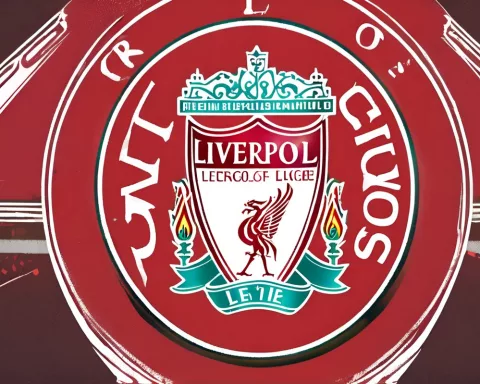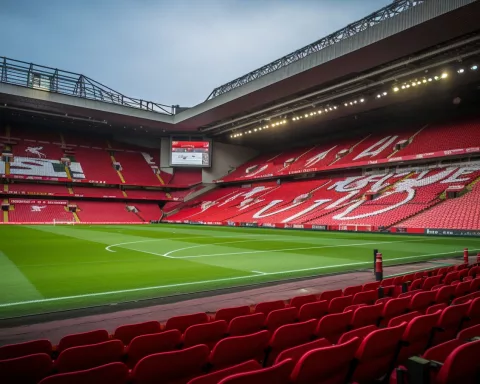The Premier League has financial regulations that limit the amount of money football clubs can lose over three years, with further reductions for clubs that spend time in the Championship. While the regulations allow for certain deductions, they have been criticized for favoring elite clubs and potentially encouraging player trading. The rules were established to prevent clubs from accumulating unchecked losses, but recent violations have resulted in point deductions and raised concerns about the regulations’ effectiveness.
What are the Premier League’s profit and sustainability regulations for football clubs?
Premier League clubs are permitted to lose a maximum of £105 million ($134 million) spread over three years. However, for every season a club spends in the Championship, this limit is reduced by £22 million. The regulations also permit certain deductions, but have been criticized for favoring elite clubs and potentially encouraging player trading.
The Financial Landscape and Football Club Sustainability
Over recent years, the financial viability of football teams has come under scrutiny. Both Everton and Nottingham Forest recently conceded to infringing on the Premier League’s profit and sustainability stipulations during the 2022/23 season. This confession could possibly bring about point deductions for both organizations, a major setback in their bid to achieve success.
The rules on profit and sustainability of the Premier League are designed to stop clubs from accumulating unchecked losses while chasing on-field victories. A recent transgression of these regulations resulted in a 10-point deduction for Everton, having surpassed the sanctioned loss limit during the 2021/22 season.
According to the prevailing financial regulations, Premier League clubs are permitted to lose a maximum of £105 million ($134 million) spread over three years. However, for every season a club spends in the Championship, the second division of English football, this limit is reduced by £22 million. Having celebrated its return to the Premier League after 23 long years, Nottingham Forest’s allowable losses were restricted to £61 million.
The Nuances of Financial Regulations
Interestingly, the financial regulations permit certain deductions considered beneficial for the club and the sport’s overall development. These deductions encompass expenses towards infrastructure enhancement, support for women’s football, and the cultivation of young talent.
Additionally, football clubs use an accounting strategy known as amortization to soften the impact of hefty player transfer fees on their financial records. By employing this approach, a player’s transfer fee of £50 million lasting over a five-year contract is distributed throughout the contract term. This appears as a £10 million expense each year instead of an immediate £50 million hit.
The measures for profitability and sustainability were initially introduced in the 2013/14 season, following UEFA’s financial fair play rules. These regulations were established with the intention of curbing excessive loss-making in European football and protecting clubs from insolvency.
Controversies and Criticisms
However, these rules have not been exempt from criticism, specifically for possibly perpetuating the existing power structures within football. Critics posit that these stipulations inadvertently favor the elite clubs, which already have significant revenue streams from larger stadiums, superior commercial deals due to vast fanbases, and regular participation in lucrative European football events.
A perfect example of this scenario is Newcastle, backed by the wealthy Saudi sovereign wealth fund, but still bound by financial restrictions due to these regulations. Newcastle’s chief executive, Darren Eales, recently admitted that they might need to sell one of their valuable players to facilitate further investment in the squad.
Critics further argue that the Profit and Sustainability Rules (PSR) might encourage player trading for clubs looking to reinvest, given the financial limitations. This perspective, along with doubts about the rules being designed to curb state-backed clubs like Newcastle, Manchester City, and Paris Saint-Germain, contributes to the controversy surrounding the PSR.
The Balancing Act and Future Considerations
Adding to this debate is Manchester City, who, despite having the Premier League’s highest revenue – a record £713 million for their triumphant treble-winning season in 2022/23 – is facing over 100 Premier League charges for historical infringements of financial regulations. These charges originate from significant losses that the club incurred in building a competitive squad and off-field infrastructure after being acquired by Abu Dhabi supporters in 2008.
In summary, the Premier League’s financial regulations aim to maintain a precarious balance between restraining extravagant spending and promoting competitiveness. However, the frequent violations by clubs and the ensuing penalties suggest that these regulations may require some adjustments to tackle the intricacies of modern football economics.
What are the Premier League’s profit and sustainability regulations for football clubs?
Premier League clubs are permitted to lose a maximum of £105 million ($134 million) spread over three years. However, for every season a club spends in the Championship, this limit is reduced by £22 million. The regulations also permit certain deductions, but have been criticized for favoring elite clubs and potentially encouraging player trading.
What are the penalties for violating the Premier League’s profit and sustainability regulations?
Penalties for violating the profit and sustainability regulations include point deductions and fines. For example, Everton received a 10-point deduction for exceeding the sanctioned loss limit during the 2021/22 season.
What deductions are permitted under the Premier League’s financial regulations?
The Premier League’s financial regulations permit deductions for expenses such as infrastructure enhancement, support for women’s football, and the cultivation of young talent.
Why have the Premier League’s financial regulations been criticized?
Critics argue that the Premier League’s financial regulations favor elite clubs and may encourage player trading. Additionally, doubts have been raised about the rules being designed to curb state-backed clubs like Newcastle, Manchester City, and Paris Saint-Germain.
How do football clubs use amortization to soften the impact of player transfer fees on their financial records?
Football clubs use an accounting strategy called amortization, which distributes a player’s transfer fee over the length of their contract. For example, a player with a transfer fee of £50 million over a five-year contract would appear as a £10 million expense each year instead of an immediate £50 million hit.
What adjustments might be necessary for the Premier League’s financial regulations to tackle modern football economics?
The frequent violations by clubs and the ensuing penalties suggest that the Premier League’s financial regulations may require some adjustments to tackle the intricacies of modern football economics.












